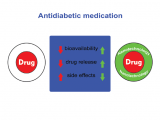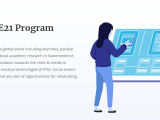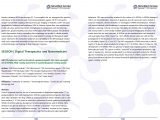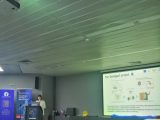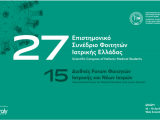NSRF 2014-2020 “Research-Create, Innovate”.
Design and develpopment of a sweat-based glucose monitoring graphene nanodevice (closed-loop) with controlled transdermal nanoemulsion release for hypoglycemic drug delivery.
The present project aims to design and develop an innovative wearable device for the prevention, diagnosis and treatment of diabetes mellitus which will make use of novice graphene structures.
The implementation of this task will rely on three individual actions and more specifically:
A. The development of a very sensitive glucose bio-sensor based on graphene. Graphene layers will be deposited layer-by-layer on a substrate (patch) with a cutting-edge technology Langmuir Blogget based on which chemical compounds which can sense/trace glucose will be immobilized to each graphene layer. This substrate will be a sticker patch which will constantly counts the glucose levels from sweat and consequently will be a non-invasive diagnostic method.
B. The development of a release system for hypoglycemic treatment. Specific SGLT-2 inhibitors and GLP-1 analogues, that are commonly used for the treatment of T2DM, will be encapsulated into a nanoemulsion. The nanoemulsion that poses lipophilic properties will be then incorporated into a gelatine patch.
C. Development of α device/software which, through a Bluetooth technology, will receive electrical sign from the bio-sensor, will analyze changes on the glucose levels from sweat and triggers the release of the nanoemulsion from the patch via thermal heating. The final product (Actions A, B and C) will be a product of a smart expertise in the area of biomedicine and pharmacy which deploy the tremendous development of biotechnology, computer science and material engineering the last decade. The implementation of this project is expected to contribute not only scientifically and economically to the participating departments as well as the company and the country, but mainly will contribute to the management of diabetes mellitus and the improvement of the quality of life of the diabetic patients.
The suggested effort of research is fully in line with the Research and Innovation Strategy for Smart Specialization (RIS3) which aims to the development of new products for the prevention, diagnosis and treatment of diseases.
